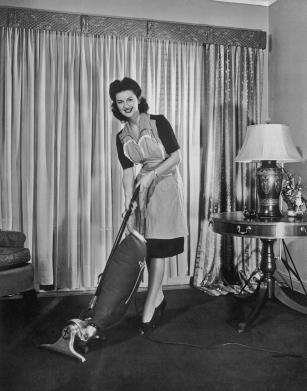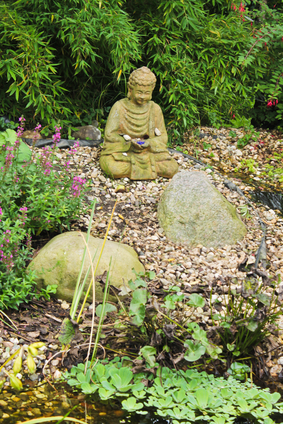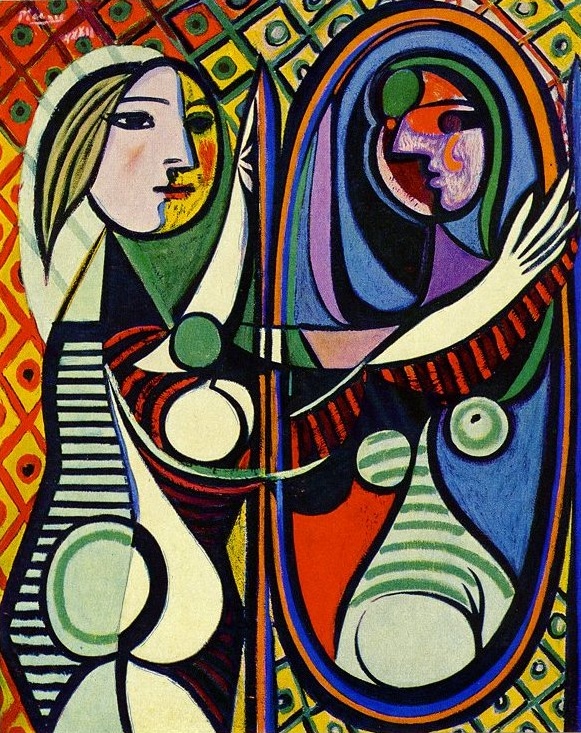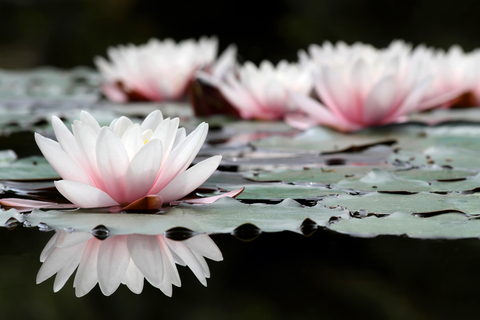Let it bleed…
I hate to start Monday off on a bad note but I’ve got some rather unpleasant news to share: the menopausal transition is pretty darn bloody.
For many of us in late perimenopause, this abnormal bleeding might come as quite a surprise. I was fairly certain that as my menstrual periods slowed, so would the blood flow. However, the bleeding appeared to worsen the closer
I got to actual menopause. It was so heavy, I would find myself going through super pluses every hour for at least a day and a half. It was truly as if the little boy took his finger out of the dam. To make matters worse, the irregularity in the amount of blood was accompanied by irregularity in the number of bleeding days, led to thoughts that often sounded like “I’m too old for this crap.”
Sound familiar?
Fortunately, this is normal. Indeed, in the first long-term (10+ years), multi-ethnic study of its kind, University of Michigan researchers found that among 1,320 ethnically diverse women (White, African-American, Chinese/Japanese), 91% reported that at one of their periods over three years lasted 10 days or more! Nearly 88% reported spotting for six or more days consistently over their cycles. And, about 78% had three or more days of heavier than normal bleeding. What’s more is that a quarter of the women reported having heavy bleeding lasting 10 or more days within a six month period. Common factors that appeared to contribute to abnormally heavy bleeding included uterine fibriods, use of hormone replacement, and overweight and obesity (i.e. BMI 25 to 29.9 and >30). Current smokers were also more likely than non-smokers to have three or more days heavy bleeding.
Over the 10 years of the study, the women, all of whom were either in early or late perimenopuase and were only, on average, 45, kept regular diaries so the information about blood flow and duration are accurate. (By the by, early perimenopause is defined by a difference of at least a week persistently over consecutive menstrual cycles and late, as the first occurrence of a cycle length of at least two months.)
There is a wee bit of good news for our African-American and Asian sisters, both of whom fared far better in the heavy bleeding department (African-Americans were less apt to report 10+ or 6+ days of heavy bleeding or spotting while Asians were less likely to report 3+days).
So, what’s the lowdown? If you are in the menopause transition, you can expect to have longer menses with more days of spotting and heavier bleeding. The down side is that experts don’t have much advice as to what to do about it.
No doubt about it; let it bleed.
Read More
Help!
If you are as independent as I am, asking for help might be alien to you. Personally, I am getting better at it. But I still have the inclination to try to do something first on my own rather than rely on someone else to do for me, even if it may be detrimental.
I am having surgery today. I’ve been in significant discomfort for weeks now and that discomfort has been increasing daily. And I was going to drive myself to the procedure until my friends stepped in and took over. Don’t you think that I would realize how silly that idea was?
So, while I spend today contemplating the ‘thank goodness, folks who love me stepped in,” I challenge you to ask yourselves the following question:
When was the last time you asked for help? Better yet, how easily do you ask for and receive help?
Reading Karen Rosenthal Hilsberg’s “Lessons in Living” and her struggle to make sense of a life unraveled as her husband dies, I can’t help but reflect on a close friend who was ill several years ago. Despite a ‘take no prisoners’ attitude, he had trouble acknowledging the seriousness of his condition and even more trouble asking for support. Quite honestly, he doesn’t do too well in that department and neither do I. However, like him, I readily offer assistance to those I love and care about, whenever I can.
So, why the divide between offering and taking?
Hilsberg writes that “what I learned during this intense time of life was profound. I learned to ask for help from others.” Utilizing the mindfulness practice of the Zen Master, Buddhist monk and scholar Thich Nhat Hanh and the Buddhist Master Thich Phuoc Tinh, she says that she discovered that asking for help really wasn’t much different than providing it, that the helper and ‘helpee’ were intertwined, unable to exist without the other. By allowing assistance, she was able to provide others who cared about her and her family an opportunity to “be of service and to practice generosity” and in doing so, make a shift away trying to do everything on her own. Most importantly, by reflecting on how much she personally enjoyed being of service when loved ones needed her, she was able to accept how appropriate and okay it was to actually ask for help from others — to allow them to “do” as much as she did. The result? Her “wellbeing improved as [she] felt [her] burden shared by many hands.”
As caretakers, many women often do not adapt well to being on the “receiving end.” And yet, most of us are aware of the importance of social ties, friendships and support to our health and wellbeing, particularly as we age. So why do we find it so difficult to ask for and receive help? How do we acknowledge that be cared for does not equate to losing power or control but actually improves outlook, wellbeing, and ability to deal with any challenges that we might be facing, that allowing others to “do” empowers and does not ‘de-power?’ Is it fear of refusal? Or fear of letting go?
Mastering the art of asking for help is difficult. However, it behooves us to do so, not only for our wellbeing but for the wellbeing of those around us who wish to help.
My friend deserved the kind of care that he has provided to others in his life for most of his life.
Guess what?
So do I.
And so do you.
Mirror mirror…
[Girl before a mirror. Pablo Picasso. Boisgeloup, March 1932]
What do you see when you look in the mirror? Or perhaps a better question is ‘who?’
I have noticed something odd, something that is sending me into a bit of a tizzy.
I feel older. And the reflection I see in the mirror is not something that I like very much.
It’s a bit of a shock, as I’ve always managed to keep the aging bug at bay. I’ve spent years exercising daily, eating right and engaging in strategies that are supposed to boost physical and emotional health and wellbeing.
Yet, something is missing. A piece of me.
I spend a lot of time on this blog talking about aging and the importance of seeing yourself from the inside out. I’ve discussed what it is like to become invisible in the workplace, how our bodies are redefining themselves, often without our help or intervention, and how old habits are starting to die hard, really hard. I’ve tried to empower you to take charge and accept, but not without going down with a fight against the more negative aspects of the aging process. I wonder where I’ve lost myself within this equation.
Anais Nin is quoted as writing that we don’t see things are they are, we see things are we are. But what happens when what we are, what we’ve become, is skewed by our changing vision? How do we navigate that path without the self-criticism and negative self talk, you know, that voices that we use to tell ourselves that we look old, that our face is sagging and the lines are growing deeper, that the cellulite is more defined, that our midsection appears to have added a bit of extra cushion? When is the appropriate time to rewind and erase the tape and create a new voice?
That time, at least for me, is now.
I apologize for the personal nature of this post, the rambling self indulgence; it’s likely that you are wondering what the heck I am talking about and why, after all, this blog is about evidence and information and data. But I realized this past weekend that the me in ‘menopause’ has somehow gotten lost in the Flashfree shuffle. And that when I actually take stock, I feel a bit long in the tooth.
I’d like to hear from you, dear sisters, about your favourite strategies for overcoming self doubt, for changing the mirror image, for turning off the voices and for freeing your body, mind and soul from the aging bug.
This week, I am turning myself over to you. And I want to hear from you.
Who do you see when you look in the mirror?
Read More
Household work..the key to better sleep?
 Have I got your attention yet?!
Have I got your attention yet?!
It’s no surprise that hot flashes and night sweats rank among the most important factors when it comes to poor sleep. However. less clear are the factors that may provide a buffer against the flashes. And aside from the usual suspects e.g., crankiness and moodiness or the inability to focus, poor sleep has been linked to heart disease and obesity, among other less desirable health conditions.
So, what can you do?
I’ve written about the benefits of physical activity and amelioration of menopausal symptoms many times on Flashfree. And, I imagine I will continue to do so. But what about sleep? There is evidence that physical activity can help bolster both sleep quality and sleep quantity. Yet, few people have examined the domino effect, i.e. fewer hot flashes ← physical activity → better sleep. Moreover, even fewer have considered the benefits of non-leisure physical activity, like housework.
Now, before you accuse me of setting women back 60 or 70 years, let’s consider exactly what I am suggesting.
According to research, women participate in less leisure time physical activity but greater levels of household physical activity than their male peers. This is apparently truer among ethnicities other than Caucasian (especially African American), who also tend to have greater levels of obesity and poorer sleep characteristics. So, it would follow that by increasing both, women might fare better in the sleep department, right?
In fact, when researchers took a small group of women participating in the larger SWAN study and evaluated their self-reported and scientifically measured sleep patterns for four nights, that is exactly what they found. The group, which was comprised of both White and African-American women, reported having flashes or sweats, were between the ages of 54 and 63, had an intact uterus and were not on medications that could affect hormone levels or symptoms. And while the number of women was quite small (only 52), they fit into the full spectrum of BMI targets (from normal to obese to overweight). In addition to sleep patterns, they also shared details of their most common daily physical activity (how often, how long and how intense) and household/caregiving responsibilities (time spent caregiving, preparing/cleaning up after meals, and routine chores as well the intensity of these activities).
Not surprisingly, women who had greater levels of leisure physical activity were 8 times more likely to report that their sleep quality was better than their less active peers. And, women who reported greater household, non-leisure physical activity awakened fewer times during the night, but only if their BMI levels were lower. Yet, the benefits were mostly seen more among White women. Even more troubling is that the researchers say that they could not determine the ‘why’ of these findings, even though they conducted several different types of analyses and comparisons.
The good news is that for some women, engaging in greater levels of household physical activity and leisure physical may reduce sleep disturbances, especially if they are not overweight. For others, especially my African-American sisters, the mystery remains. African-American women often report more severe hot flashes than their White peers. And while experts have pointed fingers towards rates of obesity or distinctions in estrogen levels or smoking history, the reasons remain unclear.
Meanwhile, while I am not necessarily suggesting that you increase your household responsibilities, I do believe that even with the limitations of this study, more physical activity may beget better sleep and possibly fewer or less severe hot flashes. Finally? Can we please find some effective and viable strategies for women of colour? Although the menopause experience may vary by ethnicity, as women, we need to find solutions that work for most of us, not some of us.
Read MoreWednesday Bubble: Asking for Help
Ready to burst a bubble, as in, your own?
When was the last time you asked for help? Better yet, how easily do you ask for and receive help?
Reading Karen Rosenthal Hilsberg’s “Lessons in Living” and her struggle to make sense of a life unraveled as her husband dies, I can’t help but reflect on a close friend who was ill several years ago. Despite a ‘take no prisoners’ attitude, he had trouble acknowledging the seriousness of his condition and even more trouble asking for support. Quite honestly, he doesn’t do too well in that department and neither do I. However, like him, I readily offer assistance to those I love and care about, whenever I can.
So, why the divide between offering and taking?
Hilsberg writes that “what I learned during this intense time of life was profound. I learned to ask for help from others.” Utilizing the mindfulness practice of the Zen Master, Buddhist monk and scholar Thich Nhat Hanh and the Buddhist Master Thich Phuoc Tinh, she says that she discovered that asking for help really wasn’t much different than providing it, that the helper and ‘helpee’ were intertwined, unable to exist without the other. By allowing assistance, she was able to provide others who cared about her and her family an opportunity to “be of service and to practice generosity” and in doing so, make a shift away trying to do everything on her own. Most importantly, by reflecting on how much she personally enjoyed being of service when loved ones needed her, she was able to accept how appropriate and okay it was to actually ask for help from others — to allow them to “do” as much as she did. The result? Her “wellbeing improved as [she] felt [her] burden shared by many hands.”
As caretakers, many women often do not adapt well to being on the “receiving end.” And yet, most of us are aware of the importance of social ties, friendships and support to our health and wellbeing, particularly as we age. So why do we find it so difficult to ask for and receive help? How do we acknowledge that be cared for does not equate to losing power or control but actually improves outlook, wellbeing, and ability to deal with any challenges that we might be facing, that allowing others to “do” empowers and does not ‘de-power?’ Is it fear of refusal? Or fear of letting go?
Mastering the art of asking for help is difficult. However, it behooves us to do so, not only for our wellbeing but for the wellbeing of those around us who wish to help.
My friend deserves the kind of care that he has provided to others in his life for most of his life.
Guess what?
So do you.
Read More








